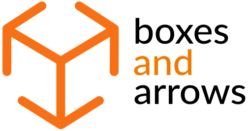I am a firm believer that success starts with the statement of work (SOW). An appropriate and attainable SOW determines whether my team of UX designers and researchers get the time and activities we require to fully understand a client’s needs and fashion a suitable solution. Regrettably, we often work within overly prescriptive SOWs that dictate a solution before we have a chance to understand the problem. One reason projects are poorly scoped is our clients’ discomfort with ambiguity. Clients
Continue readingSearch Results for: content strategy
A New Challenger Appears
Prototyping is fundamental in a host of different industries. Since I spend a lot of my time prototyping as a user experience (UX) designer, I look to other fields for insights into new techniques that might save time or more effectively communicate an interaction. Storyboards are a great example of a technique that the UX community borrowed from film, television, and comic books. What’s interesting is that despite the value UX has added to digital products across all industries, I
Continue readingWhat UX Designers Need to Know about Conversion Rate Optimization
Conversion is most often defined through sales, but it can also apply to clicks, sign-ups, repeat visitors, or any other metric that meets your organization’s goals. The real problem many organizations face regarding conversion, is that content is often still considered “the stuff that goes into the design.” Putting content at center stage means changing some of the fundamental ways we think about content in the design process and how it helps conversion. The principle of ‘form follows function’ states
Continue readingTeaching/Learning UX: Considerations for Academic-Industry Partnerships
Higher education is poised to help produce the next generation of user experience designers, but we can’t do it alone. In the wake of Fred Beecher’s recent “Ending the UX Designer Drought” and studies by Onward Search, UserTesting, and the Nielsen Norman Group, it is clear that the UX market is booming and that UX designers enjoy a high level of job satisfaction. It is also clear that too few UX professionals exist to meet current demand. And while apprenticeship
Continue readingThree Ways to Improve Your Design Research with Wordle
“Above all else show the data.” –Edward Tufte Survey responses. Product reviews. Keyword searches. Forums. As UX practitioners, we commonly scour troves of qualitative data for customer insight. But can we go faster than line-by-line analysis? Moreover, how can we provide semantic analysis to project stakeholders? Enter Wordle. If you haven’t played with it yet, Wordle is a free Java application that generates visual word clouds. It can provide a compelling snapshot of user feedback for analysis or presentation. Using
Continue reading